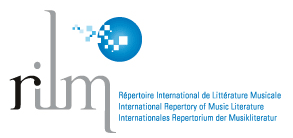The network of European impresarios in Buenos Aires (1880-1925). Some preliminary considerations
Keywords:
Impresario, transatlantic relationships, Angelo Ferrari, Cesare Ciacchi, Charles Séguin, Walter Mocchi, Faustino Da RosaAbstract
During the period of “cultural emancipation” (1884-1930), European impresarios fulfilled a relevant and controversial role in the development of the performing arts in South America. Often connected to each other through underhanded agreements, they ruled the transatlantic infrastructure and thus led the market, conveying the offer and developing the cultural demand, as result of shifting political, economic and migratory dynamics.
Although the importance of these entrepreneurs was clear at the time - and often emphasised or praised by politics, intellectuals and competitors - the role of the European impresario in South American theatrical market still needs to by explored in a broad perspective. This paper aims to contribute to the understanding of this crucial figure in the development of the arts through the perspective of some of the leading impresarios whose business flourished in Buenos Aires, undisputable cultural capital of the belle époque. Set at the centre of the transatlantic musical trade, in the early 1900s the metropolis became the most important market for the musical exportation of Italian and French composers, in the same period in which the 'Argentine centennial' brought about a deep change in the attitude towards the European models
Published
Issue
Section
License
Copyright (c) 2020 Matteo Paoletti

This work is licensed under a Creative Commons Attribution-NonCommercial 4.0 International License.
ATTRIBUTION-NONCOMMERCIAL 4.0 INTERNATIONAL
https://creativecommons.org/licenses/by-nc/4.0/
You are free to:
- Share — copy and redistribute the material in any medium or format
- Adapt — remix, transform, and build upon the material
- The licensor cannot revoke these freedoms as long as you follow the license terms.
Under the following terms:
- Attribution — You must give appropriate credit , provide a link to the license, and indicate if changes were made . You may do so in any reasonable manner, but not in any way that suggests the licensor endorses you or your use.
- NonCommercial — You may not use the material for commercial purposes .
- No additional restrictions — You may not apply legal terms or technological measures that legally restrict others from doing anything the license permits.
Notices:
You do not have to comply with the license for elements of the material in the public domain or where your use is permitted by an applicable exception or limitation .
No warranties are given. The license may not give you all of the permissions necessary for your intended use. For example, other rights such as publicity, privacy, or moral rightsmay limit how you use the material.







